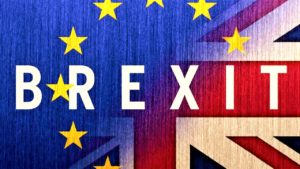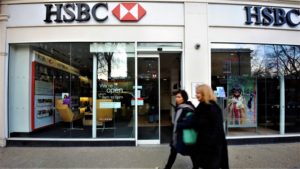
Brexit is the withdrawal agreement of the United Kingdom from the European Union Parliament. The UK government conduct the referendum on 23rd June 2016, in which 52% voted to leave and 48% voted to stay in the European Union. the British government officially reported the nation’s withdrawal in March 2017, starting the Brexit procedure. The withdrawal was deferred by a halt in the British parliament. Following a general political decision, Parliament endorsed the withdrawal understanding, and the UK left the EU on 31 January 2020. This started a change period that is set to end on 31 December 2020, during which the UK and EU will arrange their future relationship and trade deals.
What is the European Union?
The European Union (EU) is a gathering of 28 nations that exchange and permit their residents to move uninhibitedly between countries to work and live. In the beginning, it was based on the remains of World War II to end hundreds of years of slaughter and to integrate economic power.
Why is Brexit such a big deal?
Europe is a very important trading partner of The United Kingdom and its biggest source of foreign investment. Its membership in the EU has helped London cement its position as a global financial center. Major threat comes from some big company to leave Britain over Brexit have gotten very continuous. As indicated by government appraises, the nation’s economy would be four to nine percent littler under Brexit (subject to how it leaves the coalition).

While an effective Brexit could be a help for the common laborers that consider the movement to be a danger to their occupations, youthful Britons who fantasy about examining abroad are worried. Many major companies thinking about relocating their business include Airbus, which has 14,000 employees in Britain and supports more than 100,000 other jobs.
What is ‘Hard’ and ‘Soft’ Brexit?
The European Union single market allows its members the free movement of goods, people, service, and capital. It does this by removing trade barriers and by harmonizing different members of national rules at the European Union level, but the EU is also a customs union. A group that agrees to apply the same tariffs to goods from outside the union. So goods cleared by one country’s customs, then get tariff-free entry to other countries in the union.
Hard Brexit
A hard Brexit is generally thought to involve the Uk quitting the EU single market and the customs union. If the UK left both without negotiating a free trade agreement with Brussels. It would find itself in a similar position to a country like Australia or the United State of American. It would able to trade with EU nations based on World Trade Organisation rules. But would face tariffs and other trade restrictions from the EU and vice versa.

A hard Brexit would mean the Uk would not have to pay EU contributions or agree to the free movement of EU members. But UK citizens would not have free movement to live and work in Europe either. It would have the freedom to enact its own rules and regulations. And the government would be able to negotiate free trade deals with non-EU nations, such as the US, China, and India.
Soft Brexit
A soft Brexit would see the UK remaining a member of Some countries like Norway are in the single market and not the customs union. While the opposite is true of Turkey. If the UK left the customs union as well it would be in a similar position to Norway. A Norway model would give the UK access to most of the single market. But then it would need to accept the EU’s four freedoms Capital, people, goods, and services. And although it would not be an EU member, it would be subject to EU law in many areas. But not in agriculture, fisheries, and defense. For a soft Brexit, the UK would need to contribute to the EU budget.
Who is Against Brexit?
- David Cameron – He is a leader of the Conservative Party from 2005 to 2016 and ex pm of Britain.
- Mark Joseph Carney – He is an economist and the current Governor of the Bank of England and was Chairman of the Financial Stability Board from 2011 to 2018.
- John Major, Tony Blair, and Gordon Brown – Former British PMs
Who is Against Brexit?
- Boris Johnson – He is the Leader of the Conservative Party since 2019 and the current Britain PM.
- George Galloway – He is the leader of the Respect Party in Britain.
- Nigel Farage – He is a vice-chairman of the pro-Brexit organization.
How the Brexit Impact UK Economy and Financial Banks
Depending on how hard the Brexit is, the losses are expected to be large, 2% of national income or £40 billion a year if Britain stays a member of the single market and adopts Norway’s relationship with the EU, 5% of national income if Britain just has a free trade deal with the EU, or 8% of national income if there’s a very hard Brexit and Britain trades with the EU under World Trade Organisation rules. In each case, the government expects tax revenues will be hit, even though less money will be transferred to Brussels. The net losses are expected to be between £20 billion and £80 billion a year.

There could potentially be a huge impact on the financial services industry in the city of London. The main issue is that the British banks currently have an EU passport that allows them to provide financial services throughout the European Union. And if Britain loses access to the single market, banks will lose this passport and then, it’s possible that many of them would have to set up headquarters elsewhere, move people to the continent.